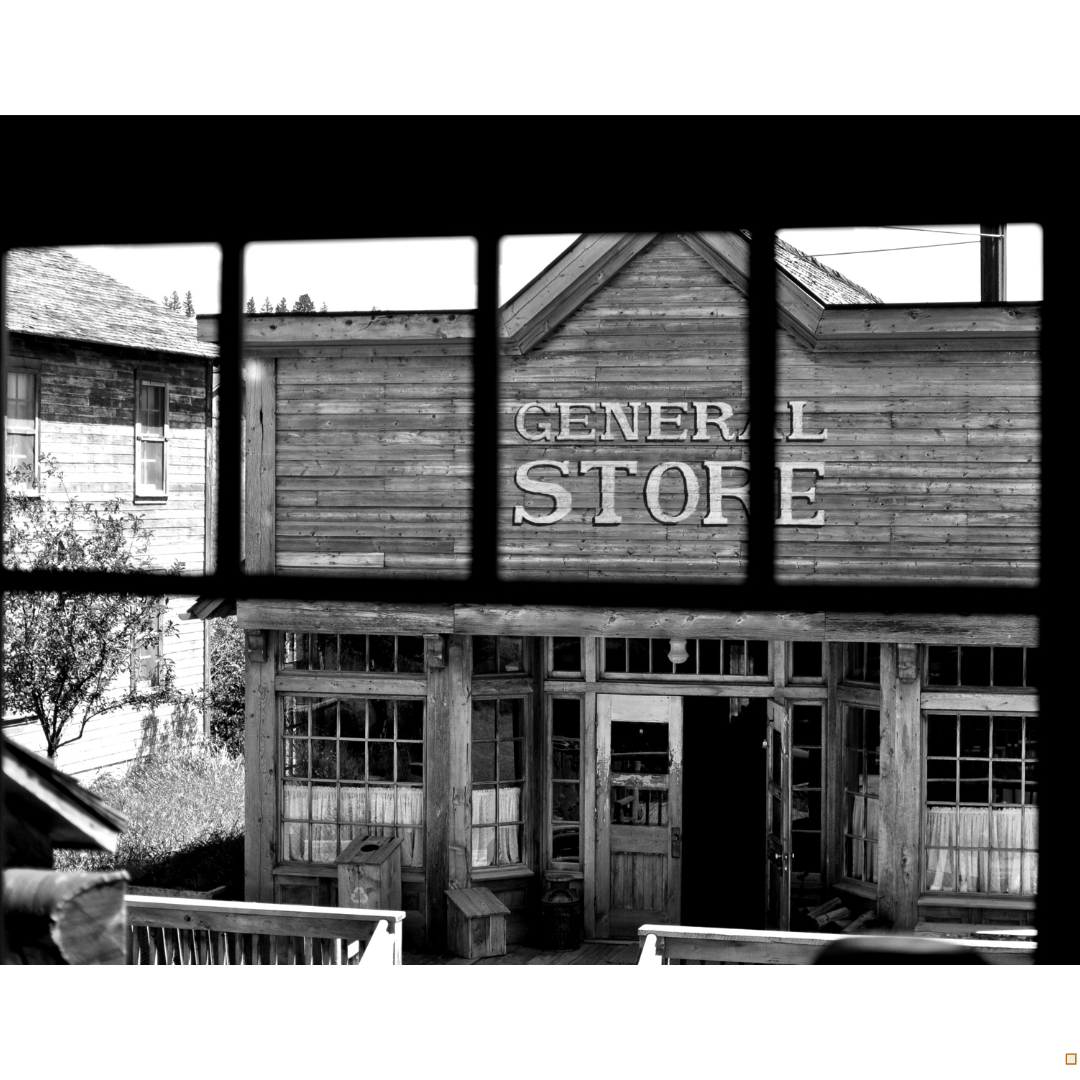
The Heart of the Frontier: Exploring the Legacy of the American General Store
In the days of the American frontier, life was rugged, unpredictable, and often isolated. Small towns and settlements sprang up across the vast expanse of the West, each community carving out its existence in a landscape both beautiful and unforgiving. Amidst the saloons, blacksmiths, and trading posts, one establishment stood as the true heartbeat of these frontier communities: the General Store.
More than just a place to buy supplies, the general store was a social hub, a lifeline for settlers, and a symbol of resilience. Today, its legacy endures—not just in history books, but in the stories, nostalgia, and even products that draw inspiration from that iconic chapter of American life.
A One-Stop Shop for Survival
On the frontier, convenience wasn’t just a luxury—it was a necessity. Settlers didn’t have the option of driving to multiple stores to fulfill their needs. The General Store provided everything from nails to flour, fabric to coffee beans, lantern oil to rifle ammunition. Its shelves were a microcosm of frontier survival, carrying both the mundane and the essential.
Imagine walking through the wooden doors of a dusty general store in the late 1800s. The smell of leather, dried herbs, kerosene, and freshly ground coffee mingles in the air. Barrels of beans and grain line the floor. Jars of penny candy glisten behind a worn wooden counter. Behind that counter stands the storekeeper, often the most informed person in town, ready to trade, barter, or extend a line of credit.
General stores weren’t just commercial spaces—they were institutions of trust, community, and endurance. In towns where money was scarce, many storekeepers kept detailed ledgers, tracking debts and allowing neighbors to purchase on credit until their crops came in or livestock were sold.
A Social Hub and Story Exchange
Beyond supplying goods, the General Store served as a gathering place. Settlers who lived miles apart would converge at the store to catch up on news, exchange stories, and enjoy a moment of camaraderie amid their challenging lives.
It wasn’t uncommon for a general store to double as the post office, a voting station, or even an informal courthouse. It might host impromptu town meetings, serve as a place for local announcements, or simply provide a warm spot to rest near the potbelly stove during cold winters.
In many ways, the general store was the original “social media” of its time—connecting people through shared news, goods, and stories. It was where you learned about a neighbor’s new baby, a storm wiping out a farm, or travelers bringing tales from faraway lands.
Stocking the Essentials—And the Luxuries
While staples like flour, beans, coffee, sugar, and salt dominated the shelves, the general store also provided small luxuries that lifted spirits. Spools of bright fabric, a bag of imported sweets, or a jar of exotic spices might find their way into stock, offering frontier families a taste of something rare and special.
Coffee, in particular, was a prized commodity. For pioneers and cowboys alike, a hot cup of coffee provided comfort at sunrise, solace after a hard day’s work, and warmth on bitter nights. Much like today’s coffee enthusiasts who seek out origin-rich beans and artisan roasts, frontier settlers appreciated a good brew when they could get it.
Today, many roasters and brands pay tribute to this connection between the general store and coffee culture by creating blends that echo the spirit of the frontier. One such homage is embodied in products like General Store coffee—a nod to the era when a bag of beans from the general store could brighten the toughest days.
The Storekeeper: A Pillar of the Community
Running a general store required more than business acumen—it demanded patience, flexibility, and a willingness to wear many hats. The storekeeper wasn’t just a merchant; they were a banker, a mediator, a record-keeper, and sometimes an advisor.
Storekeepers kept track of complex credit arrangements, balanced the needs of the community, and often stepped in to help neighbors in times of hardship. Their stores were a delicate balance between commerce and compassion, profitability and generosity.
In many towns, the storekeeper was one of the most respected figures—not because they wielded authority, but because they enabled the town’s survival.
General Stores in Popular Culture and Memory
The image of the general store remains deeply embedded in American folklore and popular culture. Whether depicted in classic Western films, literature, or historical reenactments, the general store symbolizes more than commerce; it represents a way of life rooted in simplicity, community, and self-reliance.
For modern audiences, visiting a preserved or recreated general store offers a tangible connection to the past. Old glass jars, wooden barrels, hand-lettered signs, and creaky floors evoke nostalgia for a time when life was slower, transactions were personal, and communities leaned on each other.
This enduring fascination has inspired everything from themed cafés to curated product lines that channel the spirit of the frontier. Even today’s home brewers looking for authentic, old-world flavors might seek beans that recall the rich, comforting cups enjoyed by settlers.
Honoring the Legacy of the General Store
In today’s fast-paced world of online shopping and big-box retailers, the values embodied by the General Store feel refreshingly human. The idea of buying from a place that knows your name, stocks thoughtfully chosen goods, and brings people together resonates across generations.
For those exploring the history of coffee or frontier life, resources like the Brazilian Santos Coffee Beans Hub offer insights into how historic trade routes, ports, and stores shaped what we drink today.
While the frontier general store may no longer stand on every town’s main street, its spirit lives on—in small businesses, in artisan makers, and in every cup of coffee brewed with care and connection.
A Timeless Symbol of Resilience
The American frontier general store wasn’t just a place to shop; it was a place to belong. It bridged distances between neighbors, offered hope in hard times, and stood as a beacon of resourcefulness and community.
Whether you’re sipping a morning brew, browsing local shops, or reading about frontier life, the legacy of the general store reminds us of simpler times when community was currency, trust was vital, and every transaction carried a story.

